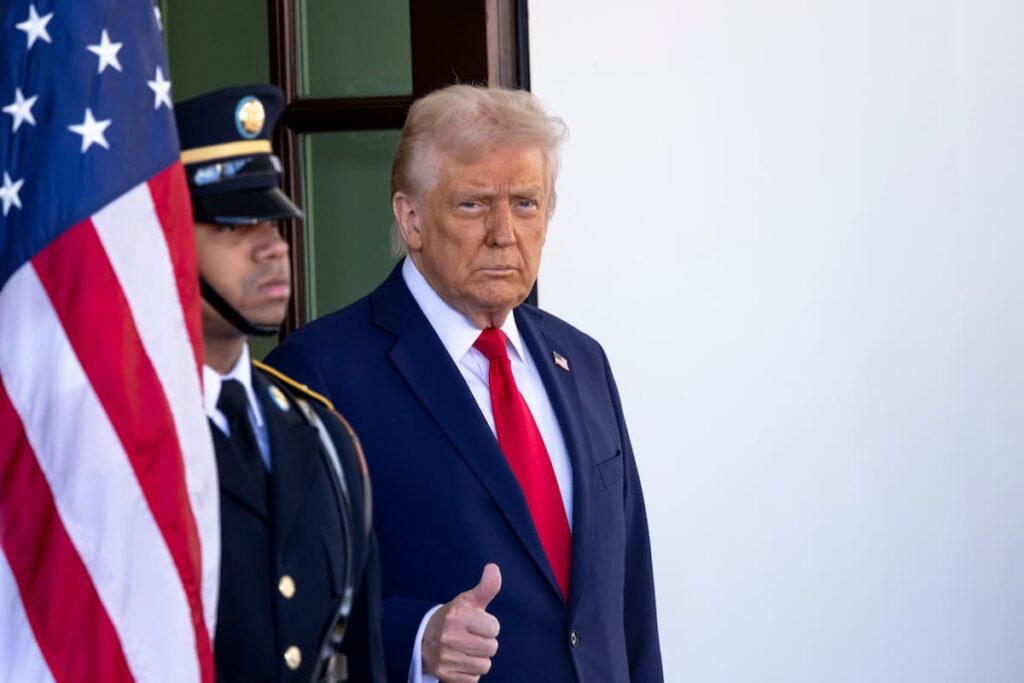A Critical Shift in the Center of the Electorate
Donald Trump is facing a significant decline in support from a key segment of the American electorate: independent voters. Once crucial to his electoral coalition, this group is now moving away from the former president, casting doubt on his strategy and future success.
Recent public opinion data highlights a deepening disapproval among independents regarding Trump’s domestic and international policies. This trend marks a turning point, as independents—often swing voters who can tilt the balance in tight races—are voicing concerns on multiple fronts, particularly in response to controversial decisions like the recent airstrikes in Iran.
While the White House has made efforts to justify the military action, a large portion of the public remains unconvinced. A CNN poll revealed that more than half of Americans disapprove of the strikes. The sharpest criticism comes from independents and Democrats, whereas Republican support, although strong, lacks intensity. This growing divide is weakening Trump’s grip on moderate voters, whose support can be crucial in close elections.
Domestic Policy Backlash Grows
Beyond foreign policy, Trump’s ambitious domestic agenda—often labeled as his “Big, Beautiful Bill”—is struggling to gain traction with independents. The proposed legislation includes extended tax cuts, new economic measures, and significant budget cuts, including reductions in health care programs like Medicaid.
Across several national polls, independents opposed this bill by margins as wide as 3-to-1. This resistance suggests a broader discomfort with the direction of Trump’s economic strategy, particularly among voters who do not align strictly with either political party. While some Republican loyalists back the initiative, independent voters appear unconvinced by the benefits and are wary of the long-term consequences.
The backlash isn’t limited to legislative proposals. On immigration, a hallmark issue for Trump, independents have grown increasingly skeptical. Over half now express a lack of confidence in his ability to handle the issue, and many feel that the administration has gone too far with deportation policies. These sentiments represent a stark contrast to the more favorable views Trump once enjoyed among this demographic during earlier campaign cycles.
Approval Ratings Hit New Lows
According to CNN’s analysis, Trump now holds one of the lowest approval ratings among independents for any modern president at this stage of their term. Experts tracking voter sentiment note a consistent erosion of support among centrists—those who previously offered him critical backing in past elections.
The root of this decline appears to be twofold: dissatisfaction with Trump’s handling of the economy and overall rejection of his broader political agenda. His policies, while popular among a segment of the Republican base, fail to resonate with voters who prefer pragmatism over partisanship.
This poses a significant challenge for Trump and the Republican Party. While it’s possible to perform well electorally without full independent support, losing them by a margin of over 20 points is considered unsustainable in a general election. These voters often decide tight races, and their shift could be a deciding factor in future contests.
Who Are the Independents, Really?
Understanding the nature of independent voters is key to interpreting these trends. Despite being labeled as “independent,” many of them lean toward one party or the other in practice. However, they tend to be less politically engaged, less ideologically rigid, and more open to change than committed partisans.
Their political behavior is shaped by current events, perceived competence, and messaging clarity. This makes them unpredictable—but also incredibly influential. Unlike Democrats or Republicans, who usually follow party lines, independents often react strongly to the impact of policy decisions on their daily lives.
Recent polling reveals that a significant portion of independents weren’t even aware of some of Trump’s most promoted legislative efforts. This lack of awareness—34% said they hadn’t heard of his tax and spending proposal—highlights their disengagement and the challenge of earning their trust and support.
In a political landscape where margins are razor-thin, losing independent voters is more than just a data point—it’s a warning sign. For Trump and his allies, regaining the center will be critical if they hope to maintain relevance and momentum in the next phase of American politics.


